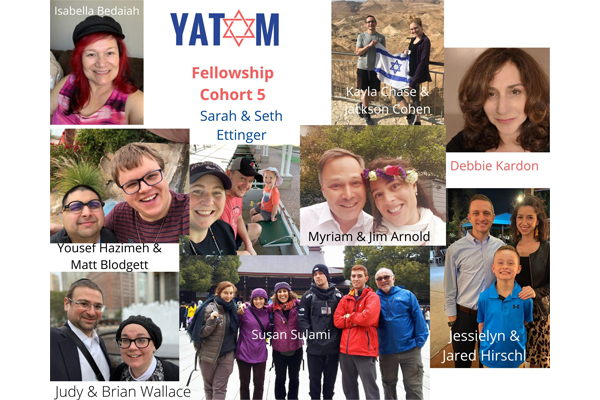In Jewish tradition, the cemetery is not a place of death but a place of life, where people honor their cherished ones and come to visit, sometimes leaving a small stone on the headstone as a sign of love.
Many Jews long to be buried in a Jewish cemetery, not in the Jewish section of a secular cemetery. Mt. Sinai, a Jewish cemetery that serves the entire Valley of the Sun, is endowed with unique features that make this possible for every Jew.
“Mt. Sinai honors the traditions and wishes of families from all branches of Judaism,” says Sandy Rife, general manager, who has lived in the Valley for almost 35 years and is known for her volunteer work in the Jewish community. “Our mission from the beginning was to be able to accommodate anyone in the Valley who is Jewish, from the most observant all the way through the scale to those who are unaffiliated with anything Jewish, but were born Jewish.”
This consecrated burial ground in the Sonoran Desert encompasses several distinct sections, each with its own criteria and regulations. “These sections are separated not just by a hedge, but in some cases by the roadway that winds through the cemetery,” says Sandy.
Founded in 2005, the cemetery is owned and operated by Jews and is closed on Shabbat and all the major Jewish holidays. All the graves face toward Jerusalem. In accordance with the Jewish custom of rinsing one’s hands upon leaving a cemetery, three hand-washing stations are dispersed across the grounds of Mt. Sinai.
“There are two assets that I think set us apart from all the other cemeteries, certainly in this area and around the country,” says Sandy. “The first and the most important, I feel, is that we have sidewalks in front of every grave. This gives the utmost respect and dignity to the deceased. No one needs to walk on a grave in this cemetery.
“The second thing we have is an open-air, covered pavilion that seats 200 … so the funeral service can take place in the same locale as the burial. Usually the service is done at the mortuary, and then you have a procession of cars to the cemetery.Also, the sidewalk access to the graves makes it very easy to move from the pavilion to the grave for the lowering. Those two features really do set us apart.”
One of the mitzvot (commandments) incumbent upon a Jew at the time of burial is to cover the lowered coffin with dirt. After the first three mounds of dirt have been placed on the coffin, the shovel is laid down and the next person continues the process.
“We always have dirt at the gravesite, as is the mitzvah,” says Sandy. “Shoveling dirt is considered the ultimate mitzvah that people can perform, because you do it with the understanding that the deceased person can never repay you. … If the family wants to stay until the grave is covered completely by my staff, they can do that.” At the funeral home, which is separate from the cemetery, “differences may come in the preparation of the
body or the casket they choose,” she says, “but at our cemetery, we prepare the grave and perform the burial the same way for everybody.”
Sandy says preplanning “is not everyone’s favorite subject,” but the benefits far outweigh the discomfort of making arrangements at the time of need.
“I believe preplanning is as important a security to your family as a will,” she says. “No one should ever really leave this burden to someone else to do or to their children. As someone is dying – whether it’s a protracted illness or whether it’s sudden – if they have preplanned, such an enormous weight has been lifted off their shoulders. … It’s a much more difficult and emotional process to purchase a grave at the time someone has died. That’s why I tell people it’s a gift. It’s a gift you give each other.”
Families often thank her for “nudging” them to preplan, Sandy says. “These people have been able to choose for themselves where they want to be buried and how they want to be buried, and they know the traditional customs of Jewish burial will be carried out in the proper way.” The peace of mind this brings is expressed in one of her favorite passages from the Talmud: “He has peace who looks to the welfare of his family … when he is
with them and when he is away.”
Amy R. Kaufman is a journalist, book editor and publisher.





